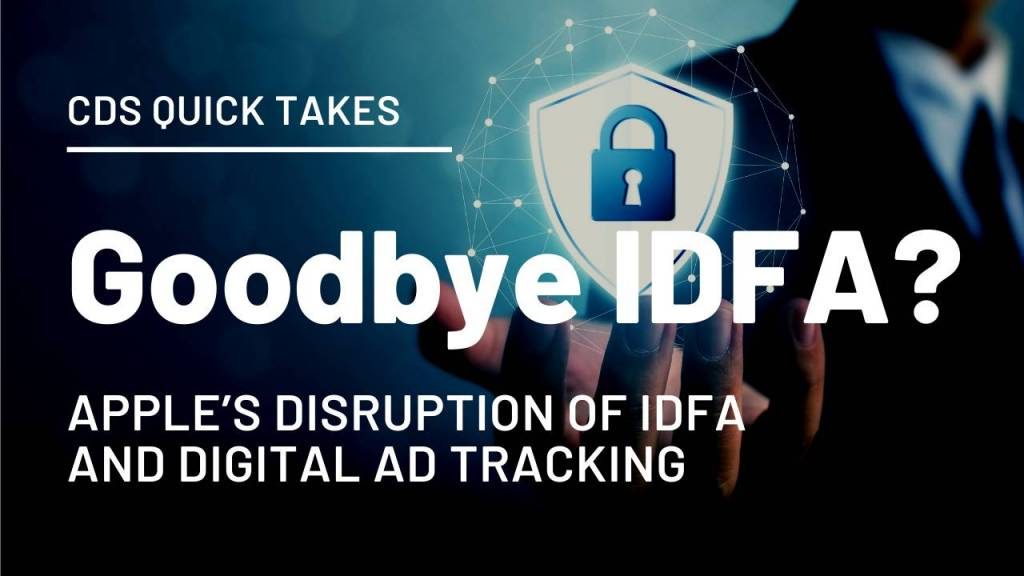Our Take on Apple’s Disruption of IDFA and Digital Ad Tracking
September 11th, 2020Topics: Apps Big Data / Analytics Marketing / Sales Mobile Privacy Social

A key topic for discussion this fall (and especially this week) is centered on data privacy and a feature embedded into the forthcoming iOS14 update that would give users more control over their data privacy and render IDFA rules moot.
IDFA stands for Identification for Advertisers. Without revealing personal information, an IDFA is assigned to a user’s device (in this case, an iPhone) by Apple. Advertisers can then use this unique identifier to track users across apps and the web.
Advertisers love IDFA, because it gives them troves of data that allows them to build incredibly specific, individual profiles. Further, this data also allows them to further segment types of users that fit specific demographics or profiles that, when viewed en-masse, provide valuable information to consumer behavior, buying patterns, and insights into mobile advertising campaigns.
When Apple announced (though subsequently delayed until early 2021) a feature in iOS 14 that would negate tracking, making IDFA rules irrelevant, it sent the mobile advertising world into a frenzy. Changes proposed by Apple put the power of data privacy into the hands of users, not advertisers. It’s a shot across the bow of one of the most dominant business models in Silicon Valley. The impact of this move will be sizable.
Of all mobile advertisers, Facebook stands to lose the most with Apple’s latest gambit. Facebook’s revenues are intertwined with advertising. Facebook built a massive business due in no small part to their uncanny ability to build deep profiles of users on its social networks. These profiles rely on deep data collection efforts across the web (not just inside the Facebook app) that would become off limits if an iOS 14 user opts out of app-based tracking. Clearly this would have a massive impact on one of Facebook’s most lucrative business models.
Key Takeaway: Facebook’s reaction to Apple’s decision to shift control of privacy and tracking to the user in iOS14 is predictable. The social media giant claims the move could result in at least a 50% drop in its Audience Network ads business. Apple is betting that developers and advertisers will adjust their strategies to continue playing in Apple’s iOS ecosystem, part of a lucrative and trusted tech stack used by hundreds millions of people around the world. Apple believes in a future where users, particularly iOS users, are more in control of who has access to (and profits from) their data.
Key questions remain as to the impact of Apple’s move on major players in the ad business, such as Facebook, Google, Adobe and also on their customers (often SMBs with less ability to spend big on more traditional marketing approaches.) Will the move create more privacy? Will it lead to increased business model diversification and innovation? Time will tell. We’d love your thoughts on the impact on data privacy, digital marketing techniques, and business model innovation.











